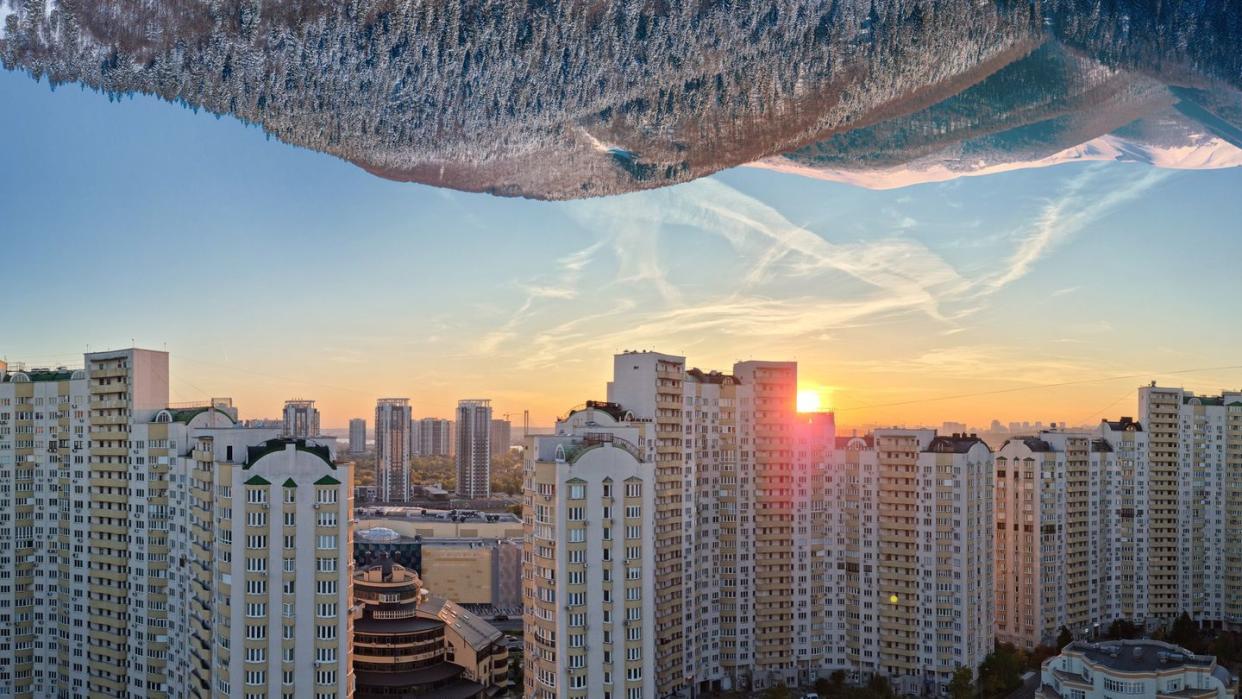According to Scientists, We Are Not In the Anthropocene... Yet

"Hearst Magazines and Yahoo may earn commission or revenue on some items through these links."
Scientists won’t declare that Earth is currently in the Anthropocene—a geological epoch also known as the Human Age—just yet.
Amidst a campaign to declare the end of the Holocene, scientists can’t figure out just when the proposed Anthropocene actually started.
The debate—now 15 years old—will only continue to fester.
The concept that humans have an increasingly profound impact on the Earth’s functions isn’t much of a question. The determination of just when that impact really started to take over, however, is. Was it the explosions of nuclear weapons? The burgeoning industrialization of our world? Or, even deeper into history, the onset of farming?
Until scientists can agree on when humans really started to impact the planet, they’re going to struggle to announce the end of the Holocene and declare us officially in a new geological epoch: the Anthropocene, or the Human Age.
Led by the Anthropocene Working Group, a cadre of scientists who believe we switched over from the 11,700-year-long Holocene into the Anthropocene sometime around the testing of nuclear bombs in the mid-20th century, the option to declare the official designation change came to a formal vote. According to the New York Times, the epoch announcement effort was rejected by a panel of experts from the International Union of Geological Sciences, who have the power to make the change for all of history.
“It constrains, it confines, it narrows down the whole importance of the Anthropocene,” Jan Piotrowski, committee member and geologist at Aarhus University in Denmark, said about the start time of the Anthropocene designation, according to the New York Times. “What was going on during the onset of agriculture? How about the Industrial Revolution? How about the colonizing of the Americas of Australia?”
The voting results of the 18-member panel were revealed—four were in favor of the designation change, twelve were against, and two abstained.
While we aren’t officially in the Anthropocene yet, some scientists believe it’s just a matter of semantics at this point. “We are in the Anthropocene, irrespective of a line on the time scale,” Francine McCarthy, a micropaleontologist at Brock University in St. Catharines, Ontario, told the New York Times. “And behaving accordingly is our only path forward.”
Erle Ellis, an environmental scientist at the University of Maryland, Baltimore County, told the newspaper that the question over a new epoch was a technical matter, adding that the decision not to add a new distinction wasn’t a result of scientists not believing humans were having an impact on the planet. “The evidence,” he said, “just keeps growing.”
The push to declare a new age started in 2009, and soon thereafter (according to the working group), the term “Anthropocene” was coined by Paul Crutzen and Eugene Stoermer to show that both conditions and processes on Earth are “profoundly altered by human impact.”
“The impact has intensified significantly since the onset of industrialization,” they wrote, “taking us out of the Earth system state typical of the Holocene epoch that post-dates the last glaciation.”
The working group believes that the list of phenomena associated with the new epoch includes an order-of-magnitude increase in erosion and sediment transport (thanks to urbanization and agriculture); abrupt human-led changes of the cycles of certain elements, environmental changes that include global warming, sea-level rise, ocean acidification, and ocean dead zones; rapid changes in the biosphere impacting animal habitats; and the proliferation of new materials like concrete, fly ash, and plastics.
“Many of these changes will persist for millennia or longer, and are altering the trajectory of the Earth system, some with permanent effect,” the group wrote. “They are being reflected in a distinctive body of geological strata now accumulating, with potential to be preserved into the far future.”
Even if scientists can agree that these factors are taking place, the question appears to be: when did this all start? Other geological times have key starting points—there were the dinosaurs of the Triassic, the mammals of the Paleogene, the ice of the Pleistocene, and the loss of glaciers marking the Holocene.
What’s the defining feature of a would-be Anthropocene? The working group had settled on around 1950, and pegged it to the radioactive fallout dusting the Earth. For now, though, that timing can be classified only as an event—no official vote is needed for that—and any change to the Holocene epoch designation will have to wait.
You Might Also Like

